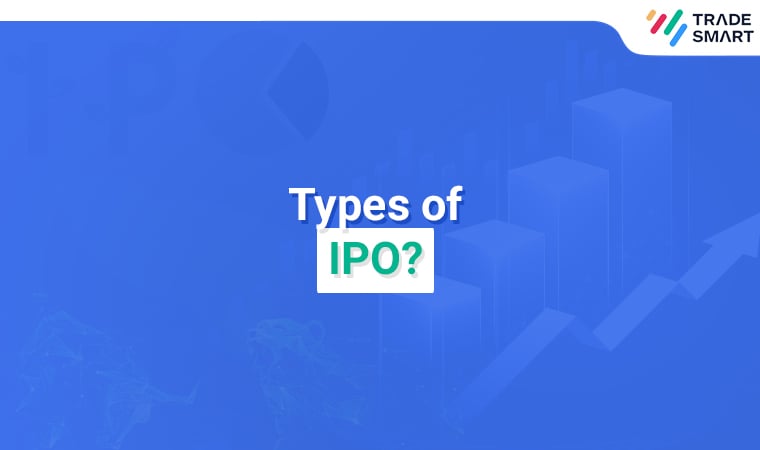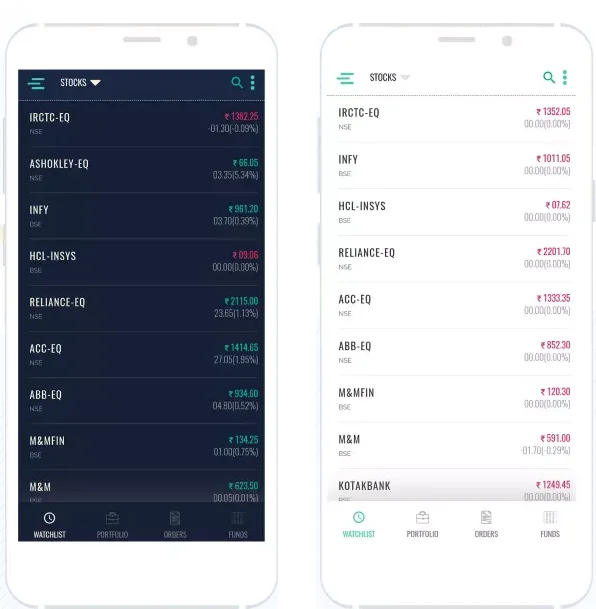Understanding the Different Types of IPOs
Feb 09 2022 5 Min Read

Trading since time immemorial has been a means of exchanging goods, increasing wealth, and burgeoning economies. It is a part of human existence and a way to help elevate the financial status of a community and help grow job opportunities. In modern times, however, we see that there are different methods of trading now in the stock market in the form of shares and derivatives.
The method of transforming a privately held company into a public company is known as the Initial Public Offering (IPO). This method offers smart investors the opportunity to generate an attractive return of investment.
And before you jump on the bandwagon, it is critical that you understand the fundamentals. Because not every upcoming IPO is a fantastic opportunity. Risks and benefits are inextricably linked to each other. But if you are an informed investor, investing in IPOs can be a wise decision.
What’s an IPO and Reasons Behind its Initiation
An IPO is the process by which a private company or corporation becomes public by selling a portion of its stake to investors and is known as an initial public offering (IPO).
Typically, an IPO is usually initiated for either one or all of the following three major reasons:
- a) incorporate new equity capital into the existing company.
- b) raise capital or funds for near future or upcoming projects.
- c) to monetize stakeholders’ investments.
As soon as the formalities for the IPO are completed, the company’s shares are listed and can be freely traded in the open market. The stock exchange mandates a minimum free float on shares, both in absolute terms and as a percentage of total share capital.
The initial public offering is a smart approach by which a growth-oriented corporation offer their shares to raise capital and the overall market valuation of the said firm. Though the procedure is simple but its impacts are huge in terms of equity shares and gaining a clout.
So, if the company does well and reaps a large profit, shareholders profit handsomely. Everyone who has invested in this company has the opportunity to acquire its fortunes in proportion to their shareholding.
Types of IPOs
There are two types of IPOs, and the distinction between them is simple and straightforward:
Fixed Price Offering or Fixed Price Issue
A fixed price issue occurs when a company establishes a fixed price for all of its shares and mentions it in the offer document.
The fixed price issue requires the company to set a fixed fee at which all of its shares will be offered to investors. A merchant banker, an entity that appraises and reduces a company’s level of risk, is hired to make this happen. This merchant bank then determines the company’s total current value as well as its future prospects. Aside from finding, they also create a risk overview of all the investments and how it would compensate the investors in the event of such a massive risk.
They determine the price of a specific share that should be fixed in order to raise significant capital for their company after studying and conducting extensive research.
The price of the stocks that the company intends to make public is then disclosed to the investors. And if investors participate in this IPO, they must ensure that they pay the full share price when submitting their application.
Here’s an example to help you understand this better. Suppose a reputed private marketing company wants to take over a small time niche company to expand its services and customer base. They can either borrow from the bank or raise money from the public. They decide the IPO route to maximize capital.
They approach a merchant bank who evaluates the company’s prospects to determine if the company can find any investors in the market.
The company then files an application for an IPO to SEBI along with the DRHP or Draft Red Herring Prospectus. The DRHP contains all the information about the company and if it gets approved then the company starts advertising about its IPO to attract investors and decide a date on the IPO.
The second type of IPO is known as Book Building Offering or Book Building Issue. Let us understand what this entails:
Book Building Offering or Book Building Issue
During the IPO process, the price of the book building issue is released. In this process, the company does not set a fixed price, but there are two price bands.
In this case, the company launching an IPO offers investors a percentage of price band on the stocks. Before the final price is determined, interested investors bid on the shares. Investors must specify the number of shares they intend to purchase as well as the price they are willing to pay per share.
The lowest price band is referred to as the “floor price,” while the highest price band is referred to as the “cap price.” Investors interested in purchasing the shares, however, must make a bid within a specific time frame before the company sets the price. And the final decision on the price of the shares is determined by the bids of investors.
Because of the book-building issue, the company does not have a fixed price, but rather price bands. The price is discovered only after an investor’s demand is generated and recorded.
Let’s understand this with the help of an example. Suppose XYZ company, a reputed startup company, wants to go public for various reasons. And so they plan an IPO. And to do so, they approach a merchant banker. The bank analyses the company’s growth potential and financial position which will help decide the share price for what investors will pay.
After all detailed analysis and research, they come up with a decision to offload 1,00,000 shares to the public and the price for the same will range from Rs. 400 – Rs. 450 meaning the minimum price that an investor has to pay is Rs. 400.
Once the bidding is done (usually for a period of 4-5 days) the company checks the bids received. It finds that 30,000 bids have been placed at Rs. 400, and 60,000 bids have been placed at Rs. 425 and 40,000 bids have been placed at Rs. 550. Since there are bids for 1 lakh shares which are Rs. 425 and above, the ones who subscribed for Rs. 400 will not get any shares.
Some other Points of Difference
Although there are many difference in both these IPOs as mentioned above, here’s a rundown of other reasons that make them distinct from one another:
Reservations:
In a fixed-price issue, half of the allocations are reserved for investors with less than two lakhs with the remainder going to high-net-worth investors.
In contrast, in a book bidding issue, some percentage of the allocations are reserved for Qualified Institutional Buyers (QIB), another percentage is reserved for small investors, and the remainder are reserved for all other types of investors.
Demand:
The demand for a fixed-price issue is unknown until the issue is closed. Conversely, the market for a book building issue can be known every day.
Payment:
In a fixed-price issue, investors must pay a full advance payment of the share price when bidding for a share. In comparison to this, in a book building issue, the payment is made after the shares have been allotted.
While there may be different types of IPOs, what is imminent in this is that if you want to be a part of the IPO process and get allotted shares to buy and sell in the future, then you have to ensure that you have a demat account for the same.
Frequently Asked Questions
Fixed price issue means the price of shares offered to the public is fixed as mentioned in the documents.
In fixed price issue, 50% of the allocations are reserved for those who have investments below 2 lakhs and the rest is given to high amount investors. In book building issue, 35% is reserved for Qualified Institutional Buyer (QIB), 35% is reserved for small investors, and the rest is reserved for other category investors.
There are several reasons for a company going public but some of the most common reasons are to incorporate new equity capital into the existing company or raise capital or funds for near future or upcoming projects or to monetize stakeholders’ investments.
Floor price is the lowest price at which an investor places a bid while cut-off price is the highest price at which the investor places a bid.
Yes. It is compulsory to have a PAN number in place when applying for an IPO and ensure that the details are correct when filling out the application.

